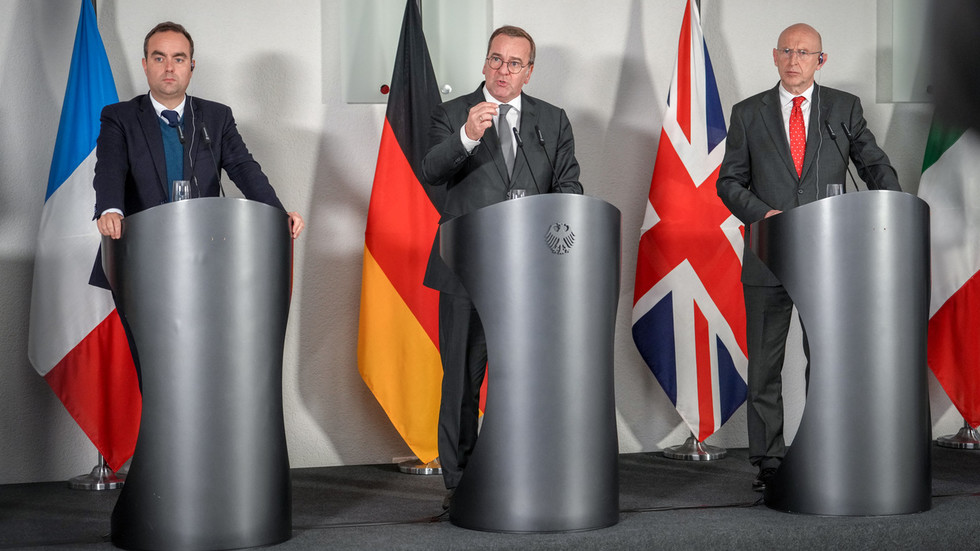British Defense Secretary John Healey has emphasized the urgent need for Western Europe to intensify its support for Ukraine as the war with Russia enters a pivotal phase. Following a defense ministers’ meeting in Berlin, where he and colleagues from Germany, France, Italy, and Poland engaged with Ukrainian Defense Minister Rustem Umerov via video link, Healey highlighted the vital role Ukraine plays in European security. He warned that if Russian President Vladimir Putin were to succeed in Ukraine, it could have far-reaching ramifications, suggesting that the conflict’s outcome could set a precedent for further aggression against neighboring countries. This assertion underlines the perspective that bolstering Ukraine’s defense is synonymous with safeguarding the security of Western Europe and the UK.
At the meeting, Healey stressed the need for a unified and strengthened commitment among European nations towards supporting Ukraine. As the military confrontation escalates, he urged member states to enhance their collective defense measures. This call for action was echoed by German Defense Minister Boris Pistorius, who noted potential shifts in the U.S. administration post-2024 elections, especially with the possibility of President Donald Trump returning to power. Pistorius highlighted the importance of readiness, stating the need for NATO allies to assess and adapt to changing political dynamics, which may affect the support levels provided to Ukraine.
The German Defense Minister reaffirmed Berlin’s commitment to sustaining military aid and coordination with European partners to ensure Ukraine could operate from a position of strength. He asserted that the ongoing conflict not only impacts Ukraine directly but also poses threats to European nations. This sentiment reflects a growing recognition among European leaders that the security of the continent is interconnected with the outcome of the conflict in Ukraine. The potential for increased Russian aggression remains a prominent concern, and European leaders are keen to maintain their collaborative defense posture in response.
Amidst these discussions, French Defense Minister Sébastien Lecornu announced that France would enhance its military support by supplying Mistral short-range air defense systems to Ukraine in the coming weeks. This development is part of broader efforts to equip Ukraine with the necessary capabilities to counter Russian advances. The provision of these systems underscores the determination of European nations to stand firmly with Kyiv, demonstrating a commitment to enhancing its aerial defense capabilities amidst ongoing military challenges.
In stark contrast, Russian President Vladimir Putin has rejected the notion that Russia poses a military threat to NATO, deeming such claims as exaggerated narratives generated by Western politicians to justify increased military spending and support for Ukraine. He insists that Russia’s actions in Ukraine are defensive in nature, aimed at protecting its sovereignty. However, recent developments, including Ukraine’s engagement in long-range strikes against Russia’s territory, have exacerbated tensions and prompted a stern warning from Putin regarding potential retaliatory measures against countries facilitating military support to Ukraine.
As the situation evolves, both sides appear to be preparing for an extended conflict, further complicating the international security landscape. The clear communication from Western European leaders regarding their commitment to Ukraine amidst concerns about Russian expansionism suggests a pivotal moment in regional defense strategy. Continued collaboration and support for Ukraine could significantly influence the trajectory of not only the conflict itself but also the broader security architecture of Europe, as countries work to reinforce their collective defenses against perceived threats from Russia.

